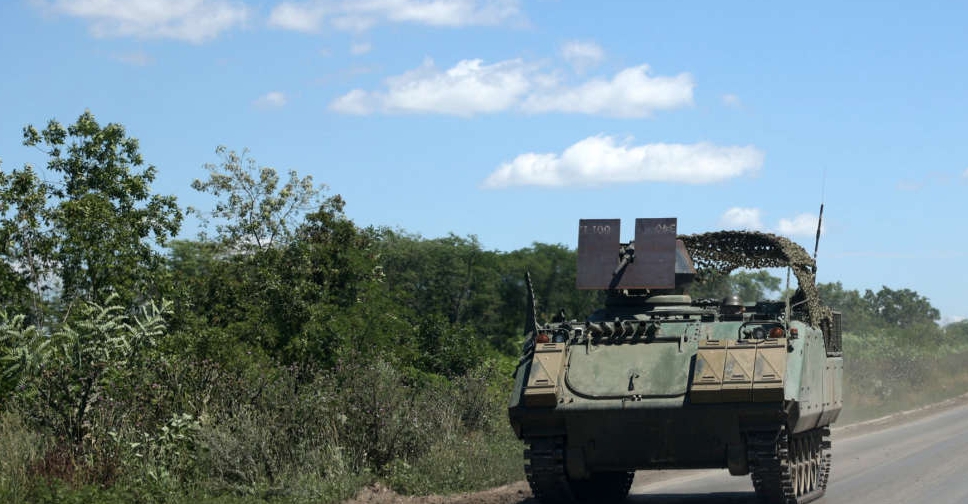
Ukraine has received cluster bombs from the United States, munitions banned in more than 100 countries, but has pledged to only use them to dislodge concentrations of enemy soldiers.
Valeryi Shershen, a spokesman for the Tavria, or southern, military district on Thursday confirmed an announcement by his commander that the weapons had arrived a week after the US said it would send them as part of an $800-million security package.
The Pentagon also announced their arrival.
Moscow has denounced their shipment. Defence Minister Sergei Shoigu warned on Thursday that Russia could resort to deploying similar weaponry if faced with their use.
Ukrainian officials say their deployment is justified in view of Russia's mining of vast tracts of land it has seized.
The country has launched a counter-offensive more than 500 days into the war, focusing on capturing groups of villages in the southeast and retaking areas around the eastern city of Bakhmut, seized by Russian forces in May after months of fighting.
"This will further demotivate Russian occupying forces and fundamentally change things in favour of the Ukrainian armed forces," Shershen told US-funded Radio Liberty.
The munitions, he said, would be used strictly within the legal framework, "only for the deoccupation of our territories.
"They will not be used on Russian territory...They will be used only in areas where Russian military forces are concentrated in order to break through enemy defences."
President Volodymyr Zelenskiy restated Ukraine's assurances during a NATO summit on Wednesday.
Cluster munitions typically release large numbers of smaller bomblets that can kill indiscriminately over a wide area. Those that fail to explode pose a danger for decades.
Each side has accused the other of using cluster bombs in the conflict launched by Russia's invasion in February 2022.
Human Rights Watch says both Moscow and Kyiv have used cluster munitions. Russia, Ukraine and the US have not signed up to the Convention on Cluster Munitions, which bans production, stockpiling, use and transfer of weapons.
The decision to send the munitions to Ukraine has been opposed by Spain and Canada, while Britain said it was part of a convention that discourages use of the weapons. Some US Democratic lawmakers also raised their concerns.
Ukrainian military analyst Oleskander Musiyenko said he assumed the weapons would be used in the south as that area's commander had announced their arrival.

 UK inquiry finds 'chilling' cover-up of infected blood scandal
UK inquiry finds 'chilling' cover-up of infected blood scandal
 Iranian President Raisi killed in helicopter accident, state media says
Iranian President Raisi killed in helicopter accident, state media says
 ICC prosecutor seeks arrest warrants for Israeli, Hamas leaders
ICC prosecutor seeks arrest warrants for Israeli, Hamas leaders
 Assange given permission to appeal against US extradition
Assange given permission to appeal against US extradition
 Israel intends to broaden Rafah sweep, Defence Minister tells US
Israel intends to broaden Rafah sweep, Defence Minister tells US




